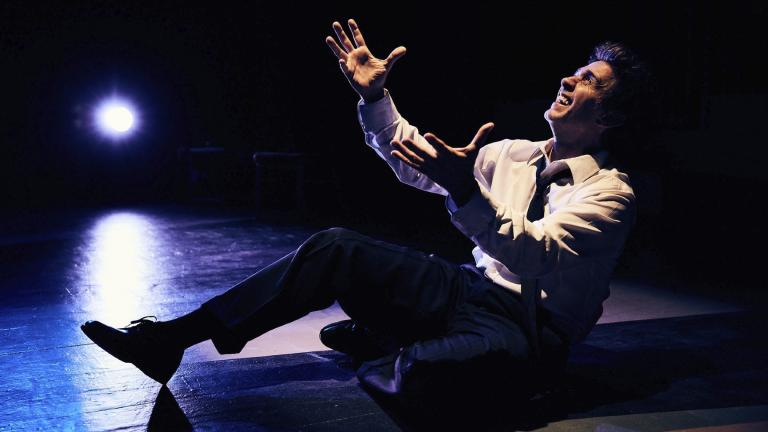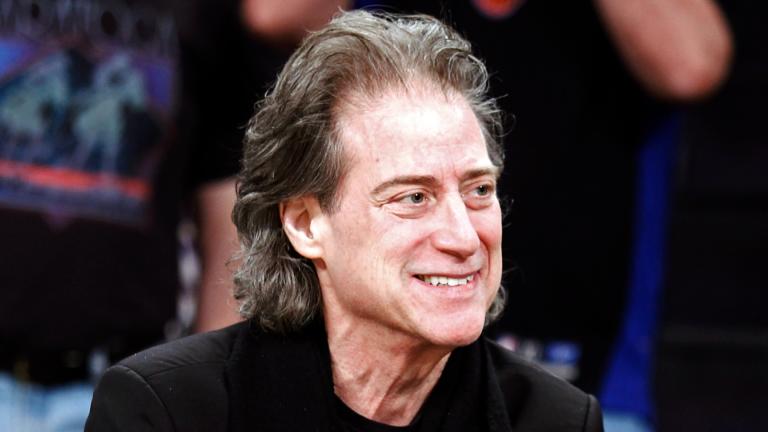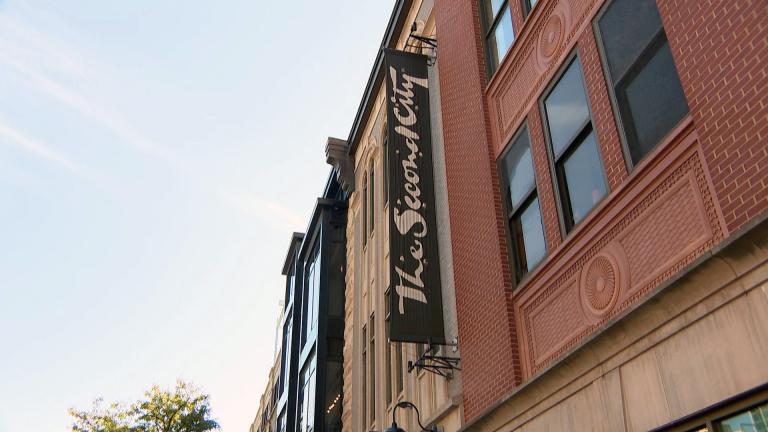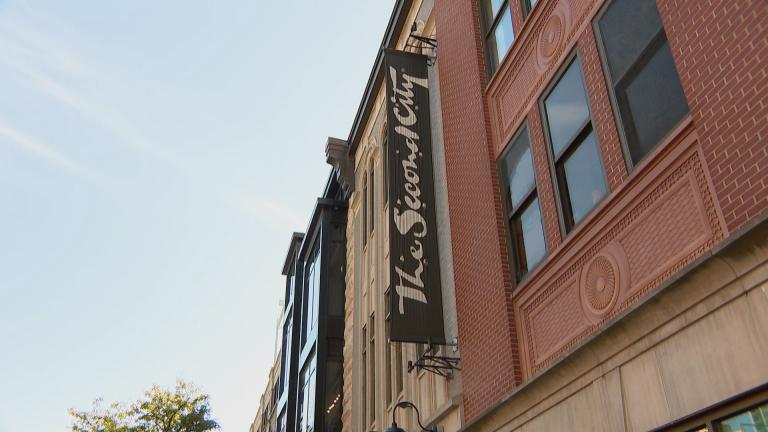Pat McGann is a former packaging salesman from the South Side who ventured into the world of stand-up comedy at age 31.
Since then, McGann’s career has taken him from comedy clubs to theaters. Along the way, there were late night appearances with David Letterman and Stephen Colbert and an iTunes special. On April 22, 2023, he’ll be making his headlining debut at the iconic Chicago Theater.
WTTW News: I read that you didn’t start doing stand-up until you were 31. What were you doing prior to that?
Pat McGann: I sold packaging, like retail packaging.
Quite frankly the world of comedy sounds a lot more interesting than that. What made want to make the jump into stand-up comedy and have the confidence to do that?
McGann: I just really love to write and think of funny stuff. And I love stand-up and I love comedy and I would see things and be inspired by them. All my life, I was always trying to make people laugh. And my friends were always very funny, and I think that it was just like, part of my existence.
My parents took us to see Seinfeld when I was young and whenever they went to like New York City, they would come back and talk about the comedy club they went to. It was just always something kind of in the back of my mind, but I never was on stage, so that element of it was terrifying.
The idea of being a stand-up comedian, the one in the spotlight, with just you and a mic trying to entertain a crowd, what gave you the confidence that you could do that?
McGann: I went to open mics in Chicago and I watched and I got a sense of what people were doing and it kind of gave me the confidence to think that I could also prepare like a three to five minute set to just try. And that’s kind of how I first started. I did it in a place in Chicago and I got enough laughs.
What was it like when you first started out? Were you instantly able to connect with an audience or was that a process?
McGann: It took a while, but I was not very personal. And I think that once I started to become more personal, I really started to connect at like a different level. I’ve evolved into just talking about my life because when I first started, I was kind of just observational and maybe a little bit removed from the material. And as I got more comfortable, I started getting more personal.
When you were starting out, how did you recover from the bad nights when you were dying on stage? How do you digest those experiences and pick yourself up?
McGann: Well, I think everybody has them, you know, everyone has bad nights and I think it translates. There’s so many parallels with like sports and I played a lot of sports growing up. And if you really pay attention, you realize that everybody misses shots, everybody chokes at some point.
There was someone who told me that you don’t learn anything from the good shows. You really only learn from the times you struggle and that is still true. Like when I have a new material, sometimes it bombs, sometimes it really struggles and it takes me a while to figure out how to shape a concept or an idea to make it relatable.
Sometimes you just abandon an idea altogether. I mean you have to embrace those nights as much as they are deflating, but you bounce back. But you know, this whole thing is like a conversation with the audience, right? And if they’re not giving you anything back, then it’s not really a conversation.
Do you find that you have to tailor your performance to the particular crowd? I imagine there are probably regional differences, obviously, international differences with comedy crowds and what they find funny.
McGann: Well, I do try and stick to me being me, but there’s sometimes boundaries, you know, if you’re doing a corporate gig or if you’re in a certain part of the country where you’ve got to change some references, but, but by and large, most of my act I haven’t had to change too much. I try and kind of bring them to me. Try and be myself and react and respond in the moment.
Who were your comedy role models or heroes?
McGann: I mean when I was growing up, Eddie Murphy, Seinfeld, Roseanne, those are all like the big names that were taking stand-up into these other directions and it was evolving. And then I was a big “Saturday Night Live” fan. I loved Johnny B (Jonathon Brandmeier), the Chicago morning radio guy. I just loved people that were ridiculous and funny.
I was really influenced by all of that and by like my friends too. I grew up in Chicago on the South Side. I grew up in a very Irish Catholic neighborhood and everybody is a storyteller. If you like separate yourself from the pack usually you get made fun of, so that was just like part of our DNA.
Tell me about your upcoming show at the Chicago Theatre in April. Will this be the first time you’ve played there?
McGann: I opened for a comic there and I’ve done an event with the Chicago White Sox there but never have performed there on my own. So this is the first time really with my name on it.
How does that feel having grown up on the South Side and obviously the Chicago Theatre is iconic. How does it feel to be the headline act?
McGann: Dude. It feels like not even real, it’s incredible. I’m so excited. I’m not like a vision board guy or like this is my goal, I gotta do the Chicago Theatre one day. But I always in the back of my mind was striving for this, especially when I was there and opened for Sebastian (Maniscalco) and you see other comics and their name on the marquee. It’s something that you work towards for sure.
Some years ago, you were the host of the “Chicago Standup Project” here at WTTW. Can you coach someone to be funny or do you think it has to just already be there, even if you have to coach to bring it out.
McGann: I think you could help someone shape a set with their own thoughts and words. Good comedy is good editing. I don’t think you can teach someone to be funny. I don’t think you can give someone a sense of humor, but I think you can work with someone to help them deliver a funny speech.
It really is like editing, right? So many times you hear somebody tell you a good story that you had to be there or that goes on too long. So just helping someone tighten something. And that was maybe my biggest take away from that experience.
I wonder where that show would have gone if we had kept going and then it got legs. I was so green at that time, I had only been doing stand up for a little bit and I didn’t know anything, you know. Not that I do now, but I think that I would have a different approach if I was doing that these days. But I still stand by that idea and I had a good time with it.
This interview has been edited for length and clarity.








